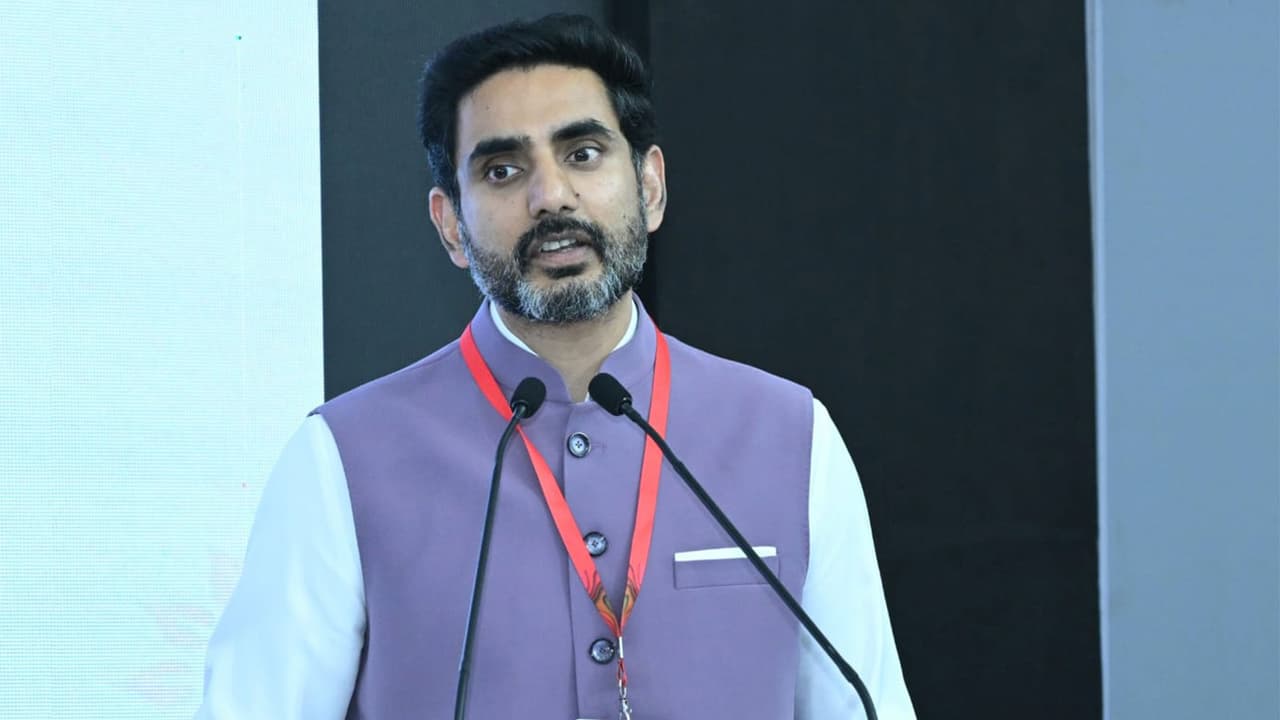AP Minister Nara Lokesh, at the Visakhapatnam Partnership Summit, warned that people must embrace AI or be replaced. He emphasized the need to reskill, redefine, and reimagine the workforce to turn AI-driven disruption into opportunity.
Nara Lokesh, Minister for Human Resources Development; IT Electronics and Communication, Andhra Pradesh, has asserted that people must either embrace AI or risk being replaced by it. He made this remark during the session titled “AI and the Future of Jobs: Turning Disruption into Opportunity” at the 30th Partnership Summit being held in Visakhapatnam.
Reskill, Redefine, and Reimagine for the AI Era
The Andhra Pradesh Minister emphasised that on the employment front, the need of the hour is to reskill, redefine and reimagine. He mentioned that the state government is in the process of releasing a framework in which conversational AI is used to assess skill levels of the workforce, across all levels, from carpenters to highly skilled AI engineers for the purpose of enhancing skills.
The Minister also urged that creativity should not be outsourced to AI. Further, he stated that AI needs to be implemented to reimagine and bridge of economic and social disparities.
Expert Views: Job Disruption vs. New Opportunities
Debjani Ghosh, Distinguished Fellow, NITI Aayog and Chief Architect, NITI Frontier Tech Hub, in a virtual address, replied to the fundamental question of whether AI is going to take away jobs or create it. “Job disruption is only half the story, and jobs of repetitive nature, and areas like software, data entry are likely to be replaced”, she noted. However, a new universe of new jobs will be created, including highly specialised jobs like AI engineers, AI architects, etc. Work will change, workers will change and the workforce pyramid will change — hyper-specialised jobs are the future with deeply specialised jobs on the frontier, she opined.
Global Perspectives and Cautions
Presenting a global perspective, Joe Depa, Global Chief Innovation Officer, Ernst & Young, USA said that the world needs India to be successful on the AI front. He said that India, as prospective AI powerhouse is ‘ripe’, with young workforce, digital infrastructure and AI usage base.
Prof Soumitra Dutta, President, Portulans Institute and Former Dean, University of Oxford and Cornell, while sharing perspective of the academia, underlined the caution that AI could pose for human dignity. He stated that humans primarily interpret data, create new patterns, and form relationships, all of which are under threat or will be under threat in the future. Machine efficiency already, in many cases, equals that of humans, and bots are being used for counselling. He urged the government and the Industry to strike a balance between humans and machines. He cautioned that there is threat to human dignity and risk large scale unemployment lurking in the future.
Societal Impact and Collaborative Action
Sharon Buteau, Executive Director, LEAD, Krea University stated that AI is beneficial for gender parity and empowers women, giving them more visibility, opportunities and access to finance.
Jeremy Jurgens, Managing Director, World Economic Forum stated “we will lose roughly 92 million jobs in the next 5 years. The good news is that there is a possibility to create 170 million new jobs. However, it will need conscious action, reskilling, and partnerships between Governments, corporations and academia.”
The session also saw the release of the CII-EY report on “AI: Is India ready for Agentic AI?” Rajiv Memani, President, CII, and Chairman and CEO, EY India, moderated the session and stated that AI is transforming the employment landscape; however, he viewed the scene as encouraging. AI can be viewed as a powerful enabler, and stakeholders should reap the ‘AI dividend’.
Summit also Focuses on Climate Resilience
The 30th Partnership Summit 2025 in Visakhapatnam, Andhra Pradesh saw the release of the CII-CESD reports on ‘Resilience Framework for Eluru and West Godavari District’ and ‘Building Climate Resilience for Indian Industry’.
A session highlighted climate risks for Indian businesses, stressing impacts on agriculture, supply chains, and communities. The industry leaders emphasized innovation, ESG, sustainable practices, and accessible insurance, with collaborative action as key to building a resilient and sustainable India. (ANI)
(Except for the headline, this story has not been edited by Asianet Newsable English staff and is published from a syndicated feed.)
